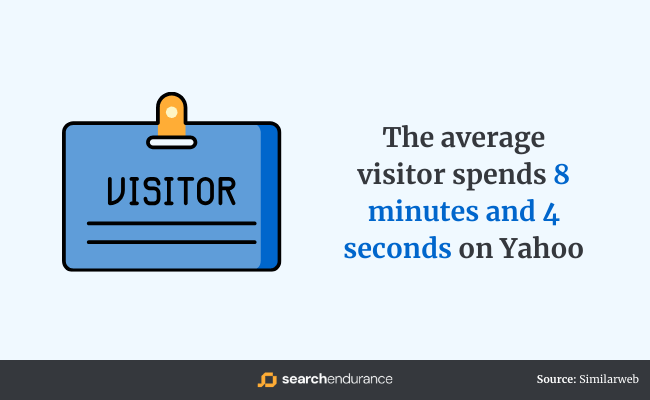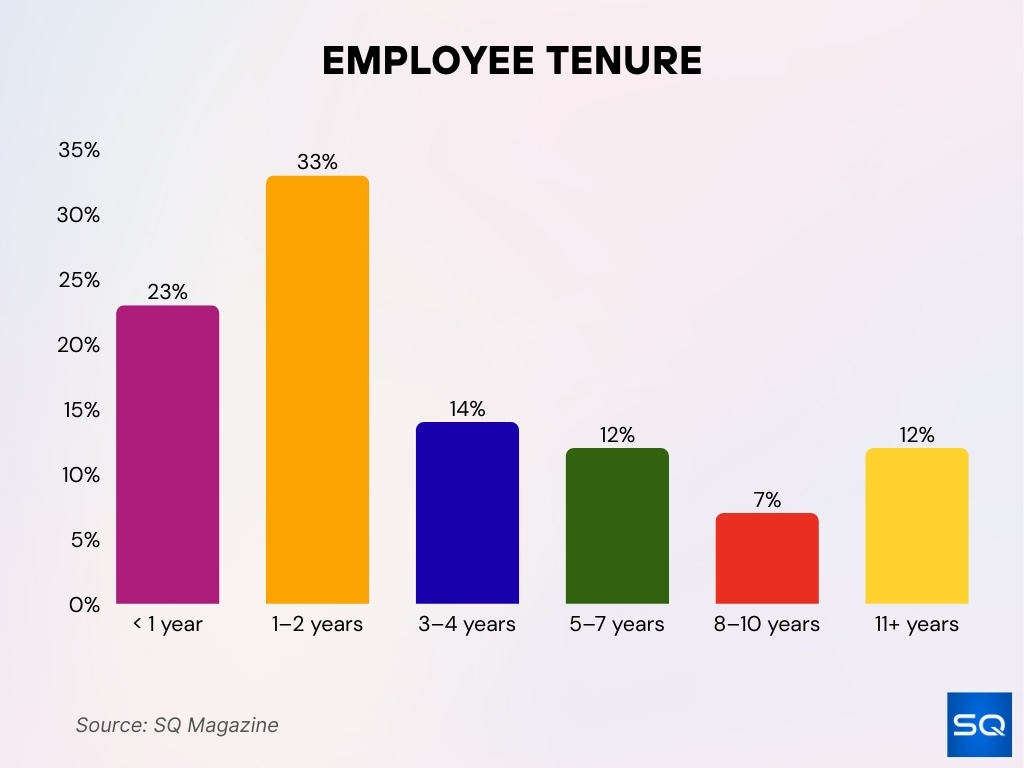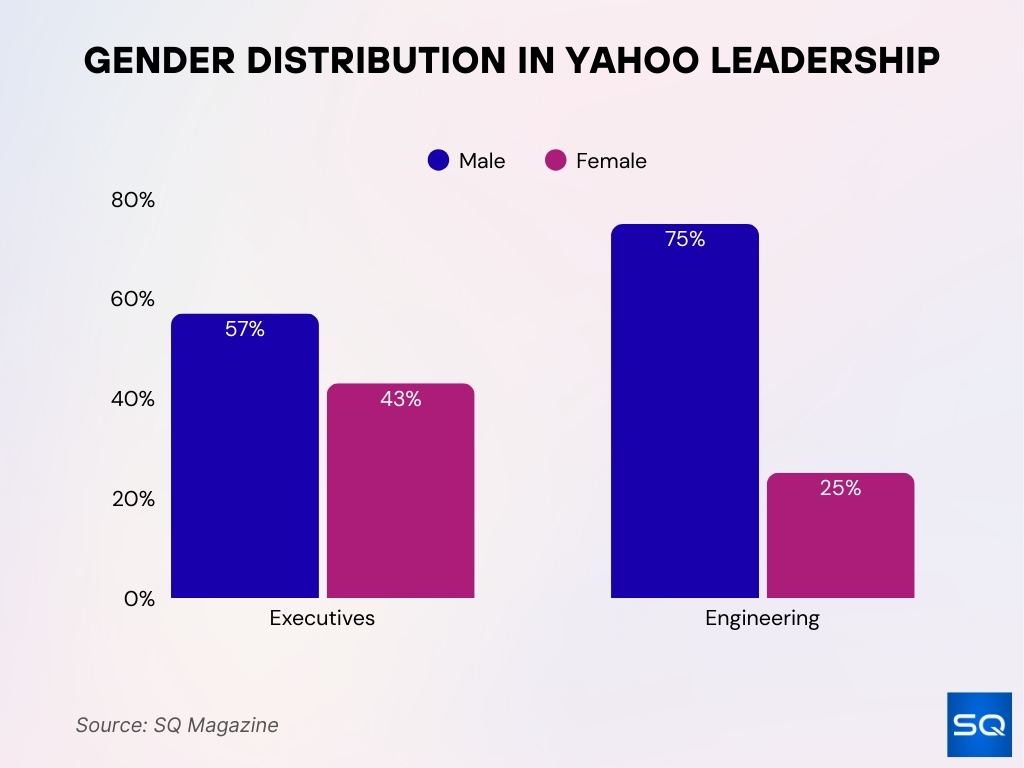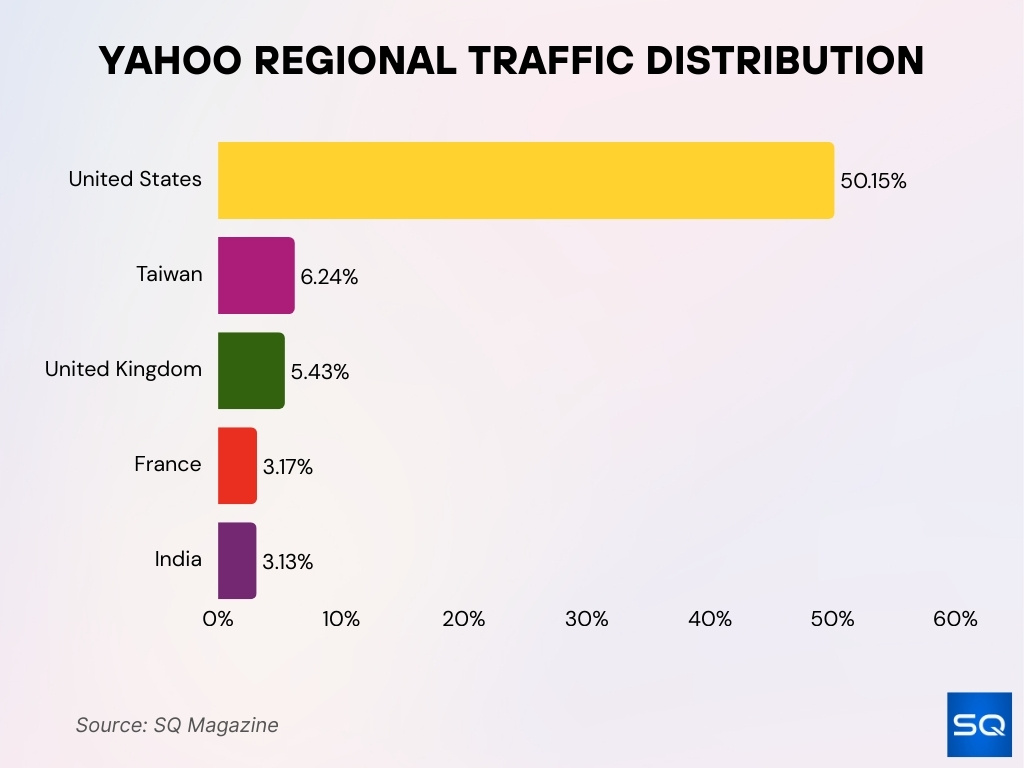Questions about Yahoo’s workforce reveal broader themes: how legacy tech brands are evolving and how talent strategies shift in a changing digital era. As Yahoo realigns under private equity ownership and pivots toward ad tech and AI, its headcount and workforce profile offer insight into its direction. Companies and analysts alike watch these figures closely, especially in media, advertising, and tech operations. Below, we unpack the latest numbers and trends.
How Many People Work at Yahoo?
- Yahoo is reported to have approximately 4,480 employees as of December 2023.
- Earlier data sources list Yahoo with 8,500 employees in other contexts.
- Women compose about 39% of Yahoo’s workforce, while men make up 61%.
- Caucasian or White employees represent ~49% of the workforce.
- About 20% of employees identify as Asian.
- The average employee tenure is about 4.1 years.
- Roughly 71% of Yahoo employees hold at least a bachelor’s degree.
Recent Developments
- In 2023, Yahoo initiated layoffs, removing over 20% of its workforce to streamline its ad tech / Yahoo for Business divisions.
- There has been a strategic shift under private equity ownership, Apollo, toward focusing more on core media properties and reducing or de-risking advertising technology that has been underperforming.
- The elimination or scaling back of certain ad tech products, e.g., supply-side platform services, is part of the recent restructuring.
- More remote/hybrid work policies likely have expanded, which may blur where employee “locations” count, onsite vs remote, and thus affect geographic staffing numbers.
- Potential cost pressures, macroeconomic factors, inflation, and interest rates are likely affecting hiring pace and compensation budgets across all functions.
- In compensation, more transparency is becoming expected in tech, affecting how employee pay and benefits are disclosed.
- Some departments are seeing consolidation, management layers, and overlapping functions to reduce overhead.
Yahoo’s Current Team (Key People)
- Jim Lanzone: Chief Executive Officer. He leads Yahoo’s overall strategy across media, advertising, and product domains.
- Matt Sanchez: Chief Operating Officer. He manages operations, user experiences (Mail, Search, News), and platform infrastructure.
- Monica Mijaleski: Chief Financial Officer. She oversees finance, planning, treasury, audit, tax, and analytics functions.
- Lisa Moore: Chief People Officer. She handles global HR, talent acquisition, employee engagement, and organizational design.
- Darin Bassin: Chief Legal Officer. He is in charge of legal strategy, compliance, privacy, public policy, and deal structuring.
- Lee Zen: Chief Technology Officer. He leads platform, infrastructure, IT, and technology engineering initiatives.
- Sona Iliffe-Moon: Chief Communications Officer (and interim Chief Marketing Officer). She guides global communications, brand positioning, and media strategy.
- Tressie Lieberman: Chief Marketing Officer. She crafts Yahoo’s marketing campaigns, brand energy, and user engagement efforts.
- Ryan Spoon: President, Yahoo Media Group. He leads media properties like Yahoo Sports, Finance, and content platforms.
- Rob Wilk: Chief Revenue Officer. He directs advertising revenue across consumer properties and ad-tech platforms.
- Alicin Reidy Williamson: Chief Diversity & Culture Officer. She heads inclusion, cultural strategy, and stakeholder engagement.
- Aengus McClean: Interim Chief Technology Officer (alternate listing). In some sources, he is assigned oversight of technical development and platform evolution.
- Bob Gurwin: Vice President, Chief Counsel. He supports legal counsel, contract, and litigation functions.
- J.L. Novak: Chief Compliance Officer & Deputy General Counsel. He focuses on regulatory compliance, ethics, and risk oversight.
- Karen Miller Reese: Chief Privacy Officer / VP, Privacy, Cybersecurity & Data Strategy. She leads privacy, data protection, and cybersecurity strategy.
- Sean Zadig: Chief Information Security Officer. He is responsible for the security and protection of Yahoo’s systems and data.
Yahoo Visitor Engagement Statistics
- The average visitor spends 8 minutes and 4 seconds on Yahoo.
- This indicates high engagement time, suggesting that users actively browse news, email, and other Yahoo services.
- Compared to many websites with shorter visit durations, Yahoo retains visitors for a notably longer session.

Growth Trends
- The most commonly cited recent headcount is 4,480 employees as of December 2023.
- However, other data aggregators refer to 8,500 employees as Yahoo’s workforce.
- Some platforms list Yahoo’s staff at 14,458, possibly reflecting earlier growth before cutbacks.
- Yahoo reportedly instituted a layoff in 2023, eliminating over 20% of its workforce, i.e., ~1,600 jobs, amid restructuring.
- That layoff primarily affected its ad tech division.
- Some sources suggest a 14% cut in employee count in one recent year.
- The discrepancy between sources implies Yahoo’s public disclosures may not always align with third-party aggregators.
- The divergence also suggests that some staff may be contractors, affiliates, or part of acquired units and thus counted or excluded differently.
Yahoo Locations and Offices Worldwide
- Yahoo retains a presence in the United States, including offices in Sunnyvale, California, and New York, its headquarters.
- It also operates in key global markets through regional offices and affiliated operations, e.g., for advertising and media.
- Some Yahoo properties, e.g., Yahoo Finance, Yahoo News, maintain local teams or regional hubs in other countries.
- Yahoo Japan, as a separate entity, employs ~11,000 people but may share technology, brand, or strategic alignment.
- Office locations likely involve engineering, marketing, media, operations, and content hubs strategically distributed across tech centers, California, New York etc.
- Remote or hybrid work may further complicate “location” counts, as staff may not reside near any office.
- Yahoo’s parent company structure, Apollo-managed, may lead to shared real estate or consolidation of offices.
- The geographic spread suggests Yahoo still aspires to a global reach, even if core staffing has shrunk.
Demographics
- Gender Distribution: Women represent ~39% of team members, men ~61%.
- Ethnicity / Race:
• White / Caucasian: ~49%.
• Asian: ~20%.
• Hispanic or Latino: ~18%.
• Other/multiple/undisclosed: smaller percentages make up the remainder. - Average age groups:
• 20–30 years: ~46%.
• 30–40 years: ~30%.
• 40+ years: ~10%.
• Younger, 18–20: ~10%. - Education levels:
• Bachelor’s degree or higher: ~71%.
• Master’s degree: ~17%.
• Associate degree: ~6.9%. - Tenure / Retention:
• Average tenure: ~4.1 years.
• Less than 1 year: ~23%.
• 1–2 years: ~33%.
• 3–4 years: ~14%.
• 5–7 years: ~12%.
• 8–10 years: ~7%.
• 11+ years: ~12%.

Racial and Ethnic Diversity at Yahoo
- ~ 49% of Yahoo employees identify as White / Caucasian.
- ~ 20% identify as Asian.
- ~ 18% are Hispanic or Latino.
- Smaller percentages cover Black / African American or other underrepresented racial groups.
- In technical roles such as engineering, the racial mix shifts: White share tends to drop, Asian share increases, e.g., in engineering, ~ 40.6% White vs ~ 31.9% Asian.
- “Unknown” or undisclosed race/ethnicity categories also exist, making the totals imperfectly sum.
- Yahoo’s global diversity reports are less frequent/public than some peers, which limits the freshest data.
- Regional differences matter: employees in Asia, e.g., Yahoo Japan, have distinct compositions; U.S.-based units will differ.
Age Distribution
- ~ 46% of Yahoo’s employees are in the 20-30 years age bracket.
- ~ 30% are in the 30-40 years range.
- ~ 10% are over 40 years old.
- ~ 10% are younger, ~ 18-20 years old.
- Very few, <1%, are under 18.
- The age mix suggests Yahoo’s workforce is skewed toward younger adults, consistent with many tech/media firms.
- Newer hires tend to be younger, which may contribute to low average tenure unless retention improves.
- Because of layoffs and restructuring, e.g., in 2023, some older/middle-career staff may have been disproportionately affected.
Gender Distribution at Yahoo
- Among executives, women make up around 43%.
- In engineering roles specifically, male dominance is stronger: ~ 74.9% male vs ~25.1% female.

- ~ 39% of Yahoo employees are female, ~ 61% are male.
- Women are underrepresented in tech-core functions at Yahoo compared to non-technical roles.
- Yahoo publishes gender pay reports for some regional units to monitor pay equity.
- Despite inequities, Yahoo maintains a Diversity, Equity & Inclusion (DEI) rating of around 4.2 / 5 in employee surveys.
- The proportion of women among leadership tends to exceed their general share of total employees, but still trails in tech/engineering leadership roles.
- Historical efforts and controversies, e.g., lawsuits or claims, have brought attention to bias or unequal treatment in specific units.
Education Levels
- ~ 71% of Yahoo employees hold at least a bachelor’s degree.
- ~ 17.1% have a master’s degree.
- ~ 6.9% hold an associate degree.
- Among common majors: business, ~18%, computer science, ~16.7%, communication, ~7.1%.
- Universities most represented: San Jose State University, ~19.6%, University of California-Davis, ~12.6%, USC, ~7%.
Tenure and Retention
- Average tenure is ~ 4.1 years.
- ~ 23% of employees have been with Yahoo for less than one year.
- ~ 33% stay for 1-2 years.
- ~ 14% for 3-4 years.
- ~ 12% for 5-7 years.
- ~ 7% stay 8-10 years.
- ~ 12% stay 11 years or more.
- Retention seems reasonable for such a fast-changing company, but relatively high churn in early years, first 1-2, indicates hiring + onboarding costs matter.
Yahoo Regional Traffic Distribution
- The United States drives the largest share of traffic to Yahoo.com with 50.15%.
- Taiwan contributes 6.24%, showing strong regional usage.
- The United Kingdom follows with 5.43% of total traffic.
- France accounts for 3.17% of Yahoo.com visits.
- India generates 3.13% of the overall traffic

Salary and Compensation Statistics
- The average total compensation at Yahoo is about $137,000/year, which breaks down to a base of ~$117,000 and a bonus of ~$20,000.
- Reported total compensation ranges from $79,898 for lower-tier engineering/technical roles up to ~$580,688 for senior leadership/engineering manager positions.
- The median reported total compensation across roles tends to fall near $198,176 in some data sets.
- The average annual salary for Yahoo roles in the U.S. is ~ $85,166, with many roles clustering near that median in lower-to-mid level functions.
- Yahoo’s salary range runs from about $36,667 for entry or support roles up to ~$244,067 for senior or sales-/leadership-oriented roles.
- Engineering roles, especially senior, manager, or specialized IC levels, tend to dominate the high end of compensation.
- Entry technical/nontechnical roles, e.g., lower-level engineers, operations, and content roles, often lie significantly below the median, which suggests steep pay curves.
- Bonuses, stock/equity, and location adjustments, e.g., cost of living in CA vs other states, also contribute significantly to variance.
Comparison with Competitors’ Workforce Size
- Yahoo was reported to have ~10,350 employees in 2019, pre-various layoffs and restructuring, under its corporate structure.
- In recent years, post-2021 Apollo acquisition, Yahoo’s workforce has reportedly been cut by over 20% in some divisions, notably ad tech, in restructuring moves.
- Compared to major peers in digital media / ad-tech, e.g., Google, Meta, Microsoft, Yahoo is significantly smaller in headcount.
- For example, Google / Alphabet employs hundreds of thousands globally, Yahoo, by contrast, is in the low thousands, 4,000-10,000 depending on which number and date one uses.
- Peer companies often have more aggressive growth in engineering, R&D, and machine learning roles, which typically drives headcount upward quickly.
- In markets outside the U.S., Yahoo’s competitors, local or global, may maintain larger local teams for content, media, and advertising; Yahoo’s international footprint is smaller overall.
- Competitors may also have higher compensation at equivalent levels, especially in growth areas like AI, cloud, or data infrastructure.
Frequently Asked Questions (FAQs)
~4,480 employees.
~39% female and 61% male.
~49% White, 20% Asian, 18% Hispanic/Latino.
~4.1 years.
Conclusion
Yahoo’s workforce presents a picture of transition, substantial downsizing in some units, while core media and engineering roles aim to hold ground. Compensation is strong for senior technical and leadership roles, though more modest at mid- and entry levels. Diversity and tenure statistics show progress but also reveal gaps, especially in representation and retention in certain functions.
As Yahoo continues to shift under private equity stewardship and confront competition in ad tech, media, and AI, its staffing strategy will remain critical. Whether Yahoo can maintain the talent needed for its evolving ambitions, in R&D, content, and engineering, while also optimizing cost and structure, will define its next chapter.



































































